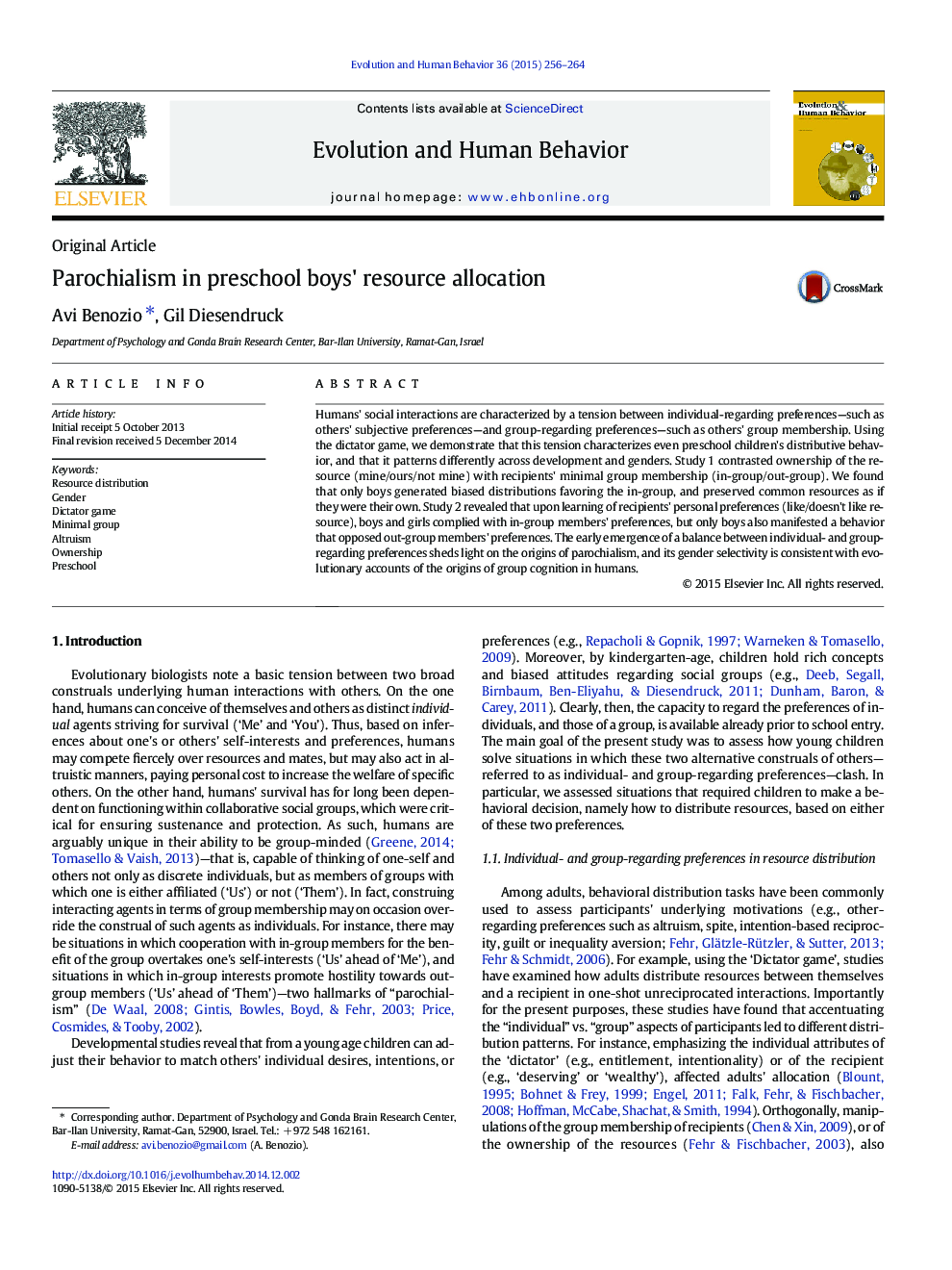| Article ID | Journal | Published Year | Pages | File Type |
|---|---|---|---|---|
| 10463962 | Evolution and Human Behavior | 2015 | 9 Pages |
Abstract
Humans' social interactions are characterized by a tension between individual-regarding preferences-such as others' subjective preferences-and group-regarding preferences-such as others' group membership. Using the dictator game, we demonstrate that this tension characterizes even preschool children's distributive behavior, and that it patterns differently across development and genders. Study 1 contrasted ownership of the resource (mine/ours/not mine) with recipients' minimal group membership (in-group/out-group). We found that only boys generated biased distributions favoring the in-group, and preserved common resources as if they were their own. Study 2 revealed that upon learning of recipients' personal preferences (like/doesn't like resource), boys and girls complied with in-group members' preferences, but only boys also manifested a behavior that opposed out-group members' preferences. The early emergence of a balance between individual- and group-regarding preferences sheds light on the origins of parochialism, and its gender selectivity is consistent with evolutionary accounts of the origins of group cognition in humans.
Related Topics
Life Sciences
Agricultural and Biological Sciences
Ecology, Evolution, Behavior and Systematics
Authors
Avi Benozio, Gil Diesendruck,
